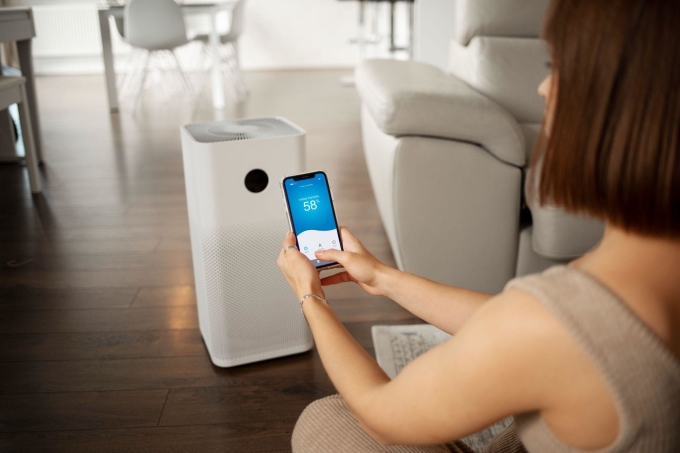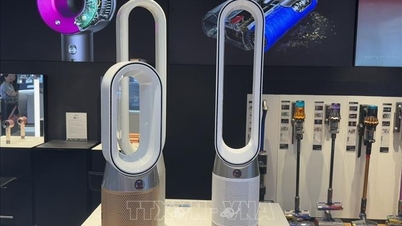Air purifiers can become potential sources of pathogens, so they should be used correctly, cleaned regularly, and their filters replaced periodically.
Dr. Nguyen Van Ngan, from the Respiratory Department at Tam Anh General Hospital in Hanoi , said that when air pollution levels are high, many people equip themselves with air purifiers to maintain a clean living space. These devices consist of multiple filters that help remove pet dander, pollen, fine dust, odor-causing bacteria, etc. Some models also integrate additional functions such as humidification, mosquito trapping, and negative ion generation.
Families should pay attention to cleaning or replacing the filter after a period of use. This principle also applies to air conditioners and fans.
Many people using this device often keep the doors closed to ensure the air filtration process is not interrupted. However, this can prevent air circulation in the room, creating favorable conditions for harmful microorganisms to survive longer, negatively impacting health. Doctor Ngan advises families to open windows and doorways at certain times of the day to improve air circulation.
Air purifiers remove dust and airborne particles but don't clean dust from the floor. Therefore, families need to pay attention to cleaning their living spaces regularly, especially if they have pets.

Many families use air purifiers to protect their respiratory health. Photo: Freepik
Air purification devices help to clean the air but do not completely eliminate allergens or respiratory irritants. Patients with chronic obstructive pulmonary disease (COPD), asthma, bronchiectasis, etc., need to avoid triggers and risk factors that may cause their conditions.
Both active and passive smoking reduce the resistance of the respiratory tract mucosa, making one more susceptible to respiratory infections. Avoiding exposure to tobacco smoke helps limit the risk of exacerbations of chronic lung disease, so ensuring a clean living environment is essential.
High levels of dust and allergens in the home can trigger exacerbations in people with chronic lung disease. Families should avoid keeping pets if someone in the household has been diagnosed with asthma or chronic obstructive pulmonary disease.
Damp walls or floors create favorable conditions for mold growth, making homeowners susceptible to respiratory infections. Families can use dehumidifiers or air conditioners to reduce the humidity in the air to below 50%.
Khue Lam
| Readers can ask questions about respiratory illnesses here for doctors to answer. |
Source link

















































































































Comment (0)